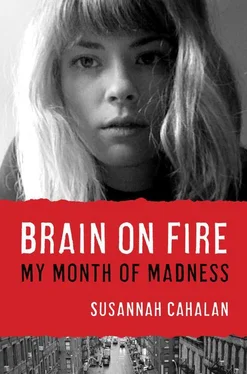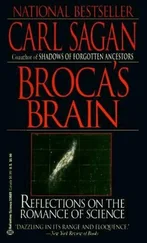CHAPTER 44
PARTIAL RETURN
As he tapered off my dose of steroids, Dr. Najjar prescribed biweekly at-home antibody IVIG treatments once the insurance company finally allowed them to be conducted at home. A nurse would arrive midmornings to hook up my IV to the bags of immunoglobulin over three to four hours. Between July and December, I had twelve infusions.
I continued my correspondence with Paul throughout July. Inevitably every few days he would ask about when I was planning to return to work, and eventually we agreed that the best strategy would be for me to casually stop by the Post offices and say hello to the staff without pomp and circumstance. We picked a date in mid-July. I remember the charge I felt as I blow-dried my hair, applied makeup, and plucked my eyebrows, the first time I had done any of that since before I was sick. Then I stood in front of my closet and examined my paltry wardrobe. Only a few things still fit, since I was well ensconced in my “roasted pig” stage, so I chose my trusty black tent dress. My brother drove me to the station, and I took my first independent train ride into the city. From Penn Station I walked uptown to my offices in the scorching midsummer weather.
But when I got to the towering News Corp. building, the place where I had worked since I was a teenager, I felt the rush of adrenaline exit my system, leaving me depleted. This is too soon, I realized; I’m not ready .
So I texted Paul instead and asked him to meet me behind the building. I had no idea then, but Paul was nearly as nervous as I was, concerned about how I would be in person and how he should treat this new Susannah. Angela, who had visited me recently in Summit, told him that I was significantly improved but still a far cry from the colleague they were used to.
When Paul walked out of the building’s revolving door, he saw me and immediately noticed how much I had physically changed: I looked like a little cherub, he thought, like a ten-year-old version of myself, complete with baby fat.
“So how the fuck are you?” Paul asked, hugging me.
“I’m good,” I heard myself say. I was so nervous that I could only concentrate on the sweat trickling down my lower back, much like when I ran into Kristy with my mom, but this time I didn’t have the buffer of another person to keep the conversation going. It was doubly difficult for me to even focus enough to look him in the eye, let alone prove to him that I would soon be ready to return to work. He cracked some jokes and talked about the job, but I couldn’t keep up. I noticed myself laughing at inappropriate times but then missing the cues to his punch lines. I could tell he was trying hard to deflect the awkward silences by maintaining a happy-go-lucky facade, but he was struggling. My state was a bigger shock than he had anticipated.
“I’m still on a lot of drugs,” I said offhandedly, hoping to provide an explanation for my changed self. “But by the time I come back, I will be off most of them.”
“That’s great. We have your desk all ready for you to return. Do you want to come up and say hi to everyone? I know people miss you.”
“Nah. I’ll do that another day,” I said, looking down at the ground. “I’m not ready.”
We hugged once more. I watched Paul disappear through the revolving doors.
When he got upstairs, he went straight to Angela’s desk. “That’s not the Susannah I know,” he said.
It was an untenable position. As a friend he was deeply concerned about my recovery and my future, but as a boss, he couldn’t help but wonder if I would ever be capable of returning to my duties as a reporter.
. . .
Nevertheless, two weeks after my brief reunion with Paul, Mackenzie called me up about an assignment for Pulse, the paper’s entertainment section. As I heard her voice, though, it reminded me of our last interaction: the night in Summit when I had failed to write the article about Gimp, right around when my seizures began in earnest. Along with that memory came a sickening feeling of failure. The self-disgust transformed into joy, though, when I realized she was offering me a new assignment.
“I want you to write about Facebook etiquette,” she said.
I may not have been ready to see all my old coworkers, but I jumped at the opportunity to write an article. I spent a week manically working on it, treating it like social networking’s version of Watergate, calling up sources, friends, and press people to get their perspectives. But once I put all my notes together in one file, I stared at the blinking cursor and couldn’t picture how to begin. The memory of that failed Gimp article only intensified my writer’s block. Would I ever be able to write again?
After I sat in front of that blank screen for nearly an hour, though, the words started to come, slowly at first and then like a fountain. The writing was rough and needed a lot of editing, but I had put fingers to keyboard, and nothing in the world felt better than that.
My article ran on July 28 in the Post ’s Pulse section under the headline “Inviting Rudeness.” I remember making a special trip to town to pick up the paper that day and glowing with pride when I opened it and saw my article there. Sure, I’d had hundreds of pieces published before, but this one mattered more than any other. I wanted to show the article to everyone, from the Starbucks baristas who had served me coffee all summer, to the younger girls who rode beside me in that spin class, to the woman at the wedding who had asked if I would ever regain my spark. This article was my redemption. It shouted to the world: I’m back! That was the most excited I had ever been about a story running in my whole career. I wasn’t going to graduate school; I was going back to work.
. . .
And a little over a week later I gathered up the courage to do just that—at least for a brief catch-up. Paul and Angela were out that day, so Mackenzie signed me in downstairs, my ID having long ago vanished somewhere in my hospital blackout. She acted as my chauffeur and protector during the visit. Walking me into the tenth-floor newsroom, Mackenzie felt as if she was dropping a toddler off at her first day of kindergarten. I took a deep breath, smoothed out the same black tent dress that I had worn for my first aborted visit, and headed inside.
No one noticed me. They were too transfixed on the Yankees–Red Sox game. Mackenzie led me past my old desk on our way to Steve’s office. “Look who we have here,” Mackenzie said to Steve.
Steve looked up from his screen, and it was clear that at first he didn’t recognize me. Then he said an uncomfortable but warm hello. “So, when are you coming back?”
My face flushed. “Soon, really soon.”
I shifted my weight anxiously from one foot to the next, trying to think of anything to say, but nothing came. When I walked out of his office, my face still flushed by the interaction, a group of reporters who had worked with me on the Sunday paper started to gather. I hadn’t talked to most of them for over six months, and though it couldn’t have been more than six people, it felt like a mob. I became claustrophobic and sweaty. It was hard to concentrate on any one thing, so I looked at my feet.
Sue, the mother hen of the newsroom, gave me a full-bodied hug. She pulled back and said loud enough for the crowd to hear, “Why are you nervous? We all love you.”
The sentiment was kind, but it just made me feel more self-conscious. Was it that obvious that I was uncomfortable? There seemed to be no buffer between what I was feeling and how I appeared. I suddenly felt violently, emotionally naked in front of all these coworkers and friends. I felt like a lab rat, innards exposed, waiting for the impending dissection. The thought jolted me: Would I ever again feel comfortable in this newsroom that basically raised me?
Читать дальше












